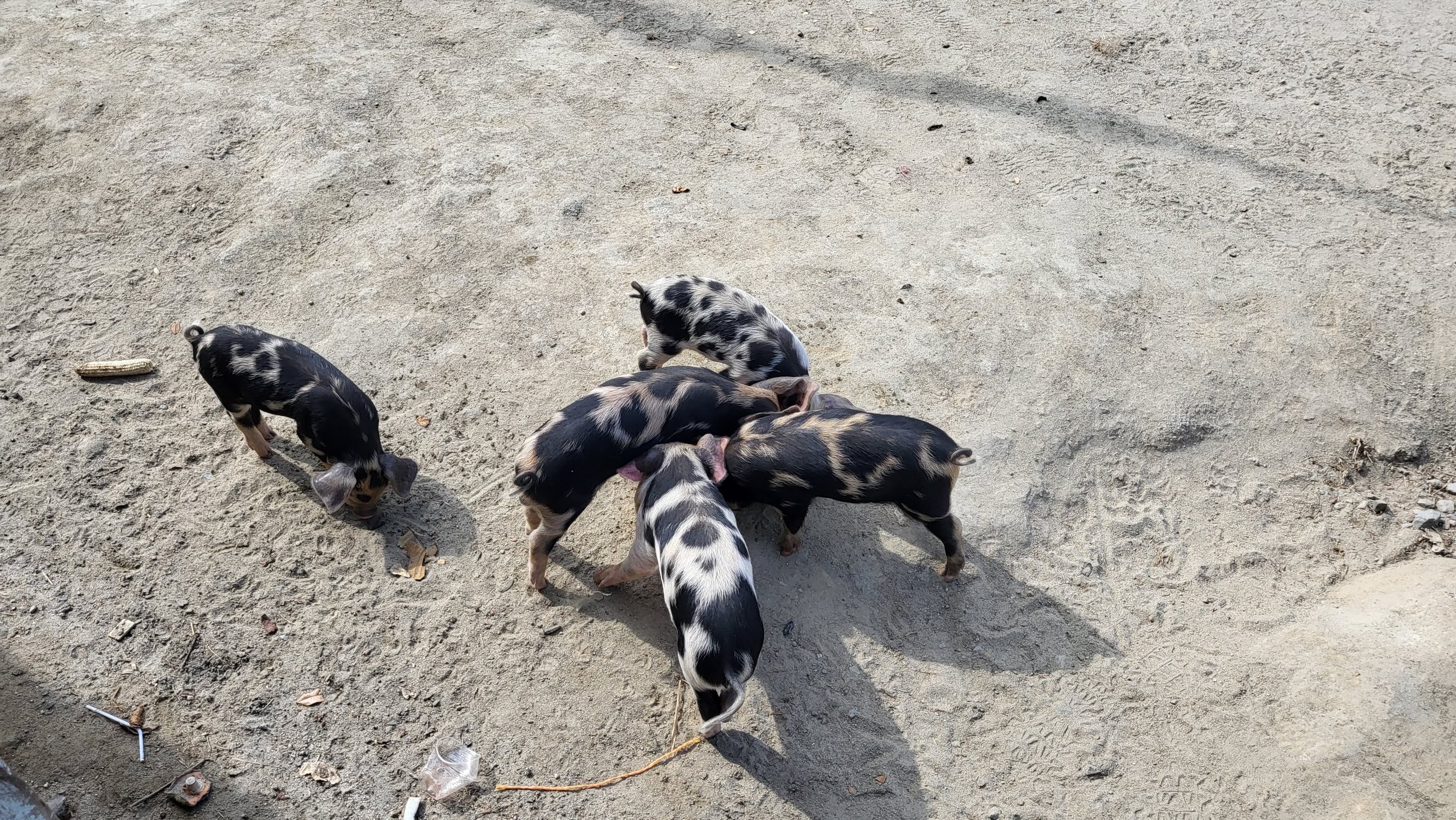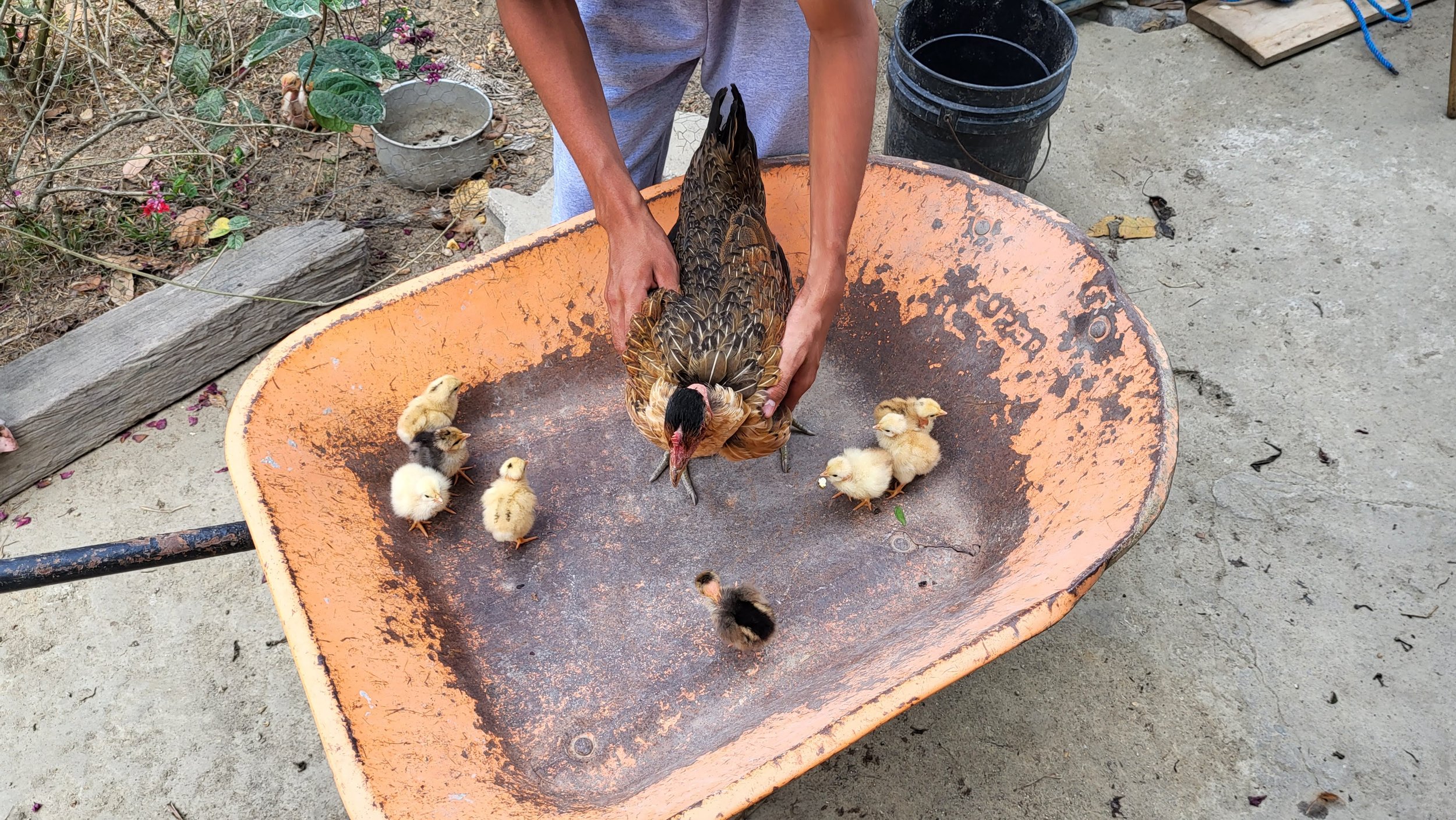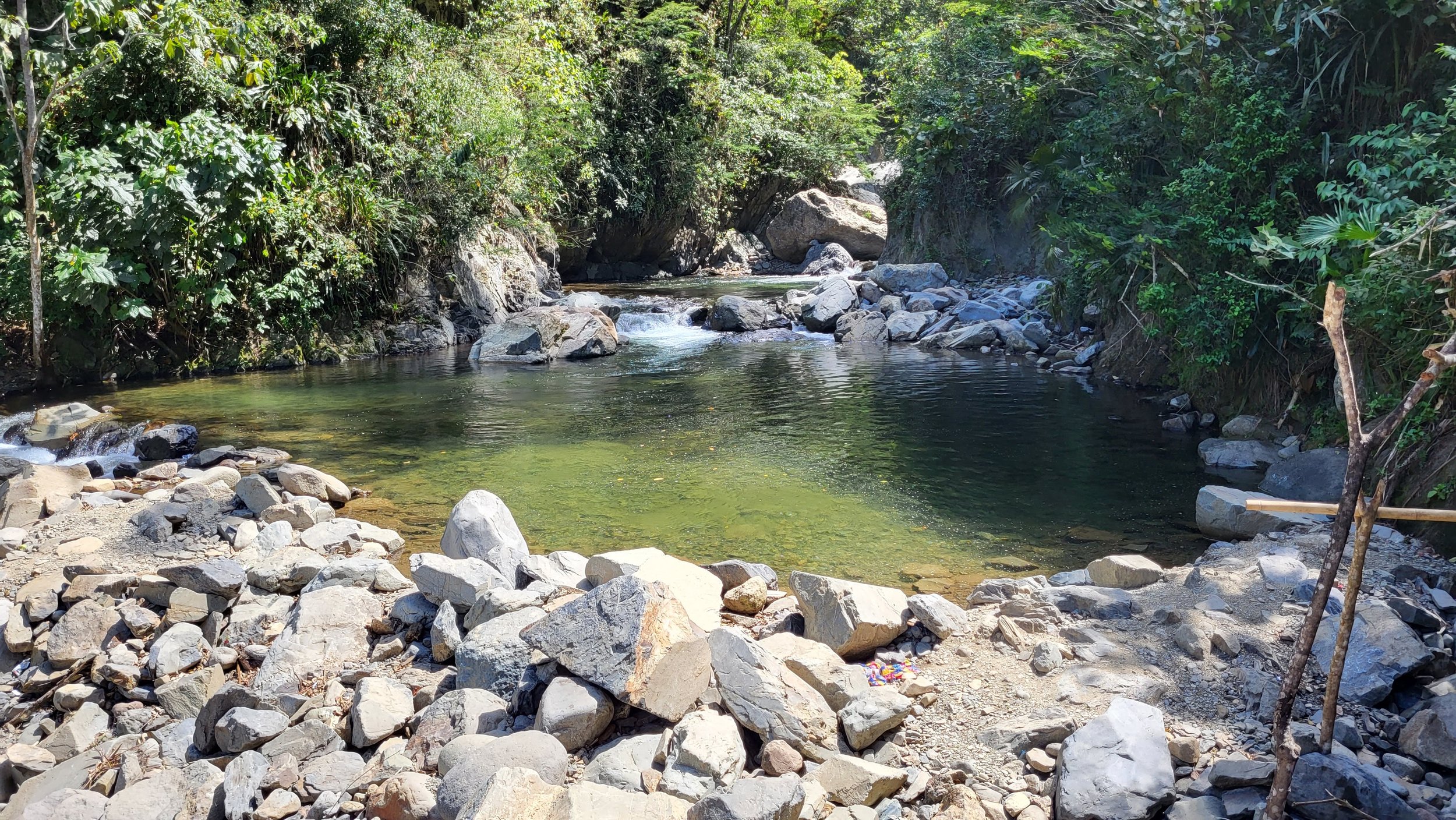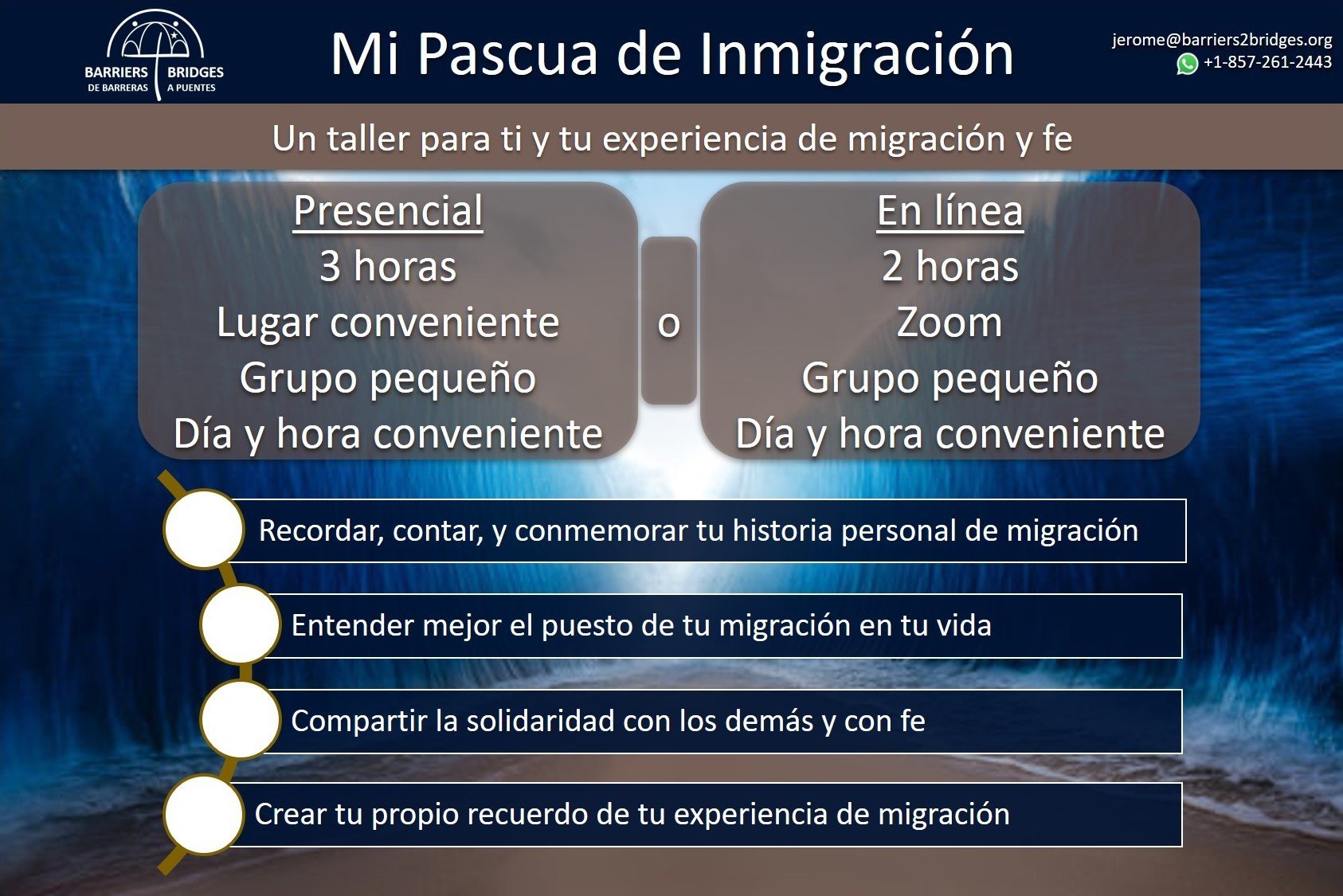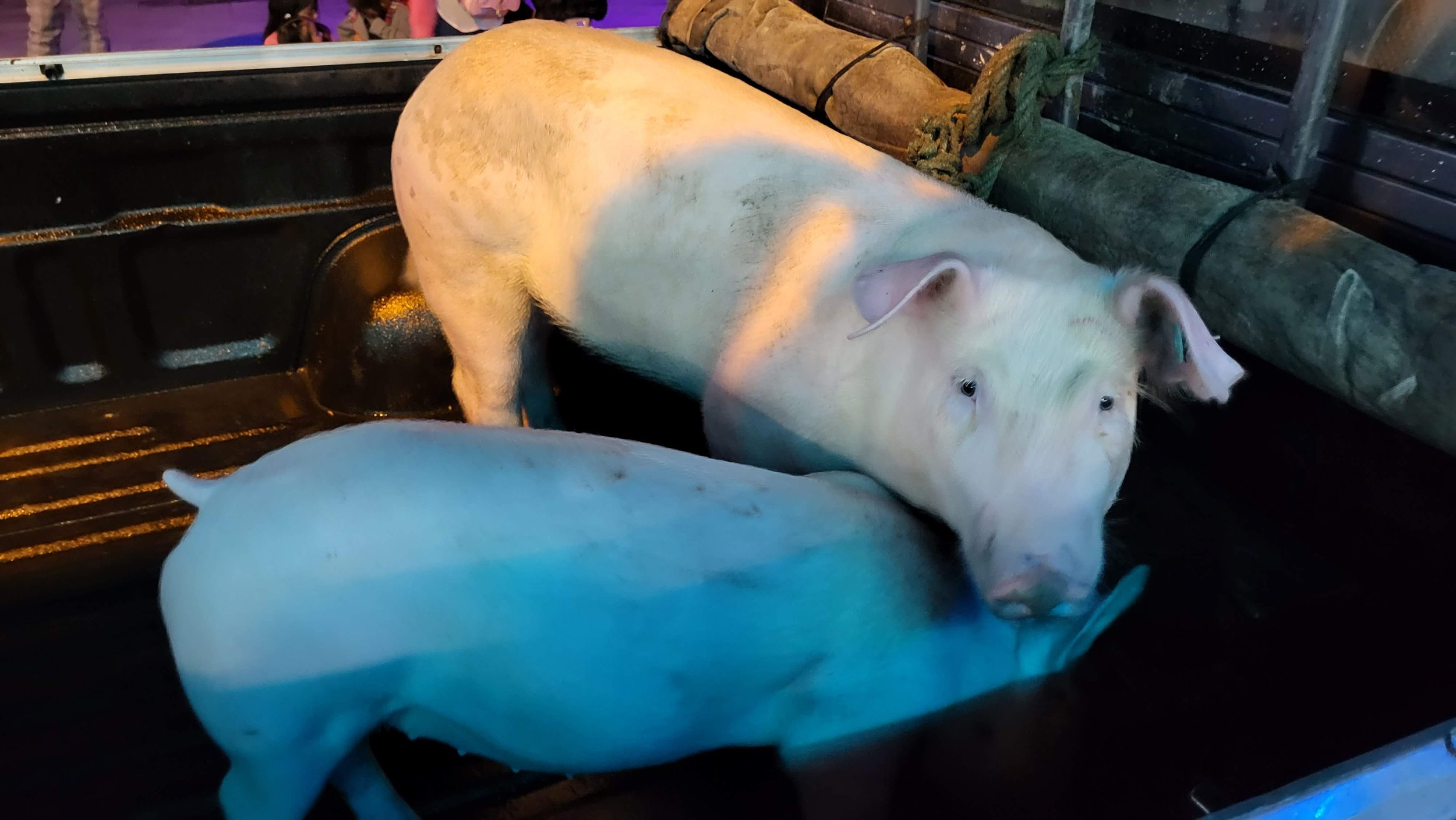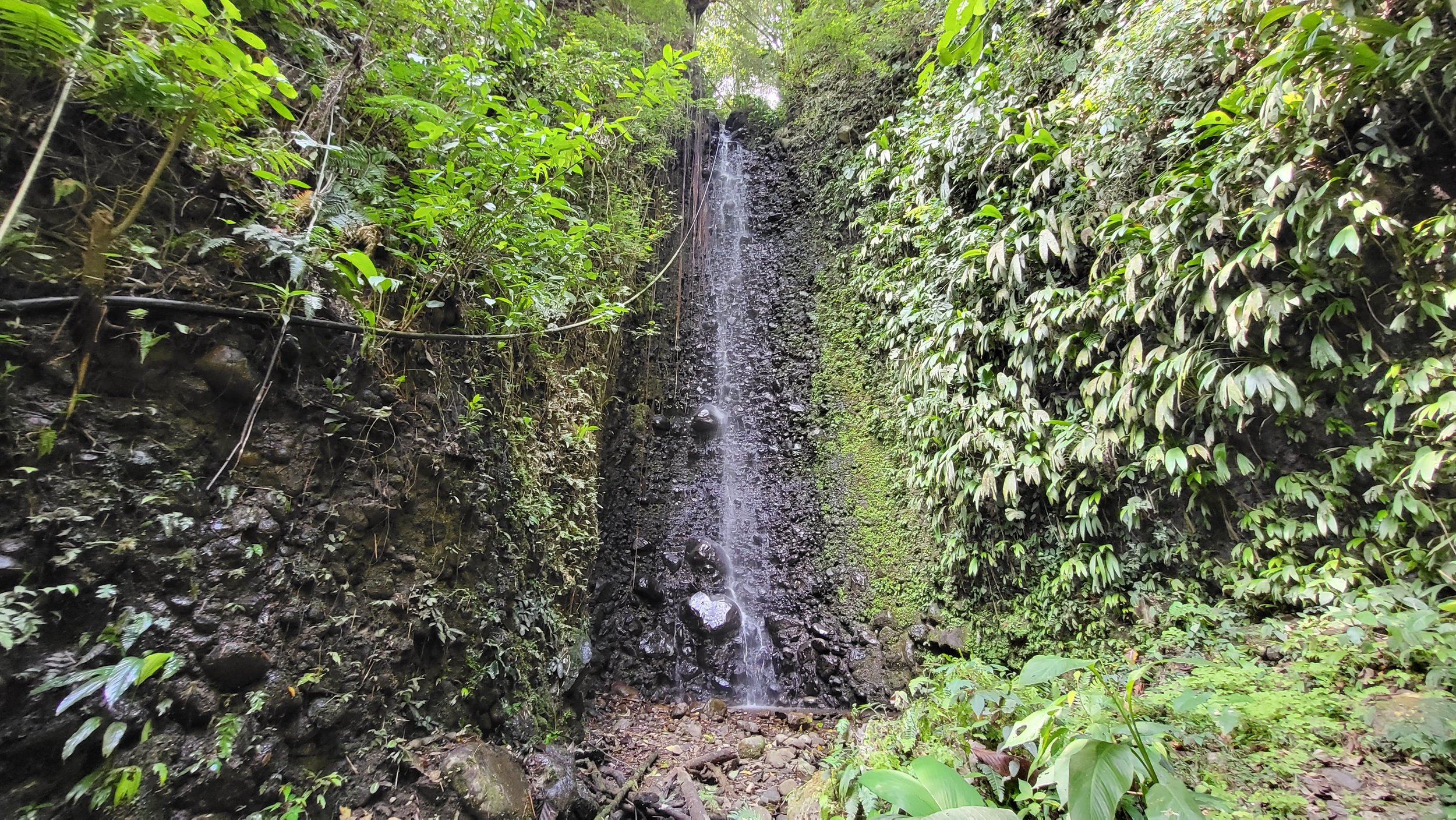Hello everyone,
Welcome to another updated from Ecuador.
As a note, I’m thinking of returning to Boston in mid-December or end of January.
Fundraiser
The fundraiser, Support A New Hope, is still open. Come and check out the details here.
I have a few updates to it since I last wrote about it in a separate post.
Zoe and her mother are now back in Mindo. Zoe is receiving some physical therapy for her body movements, as well as her swallowing reflexes. The doctors have said there isn’t anything that can be done about what’s happened. The theorize that she got Covid, that triggered a latent reaction in her brain in which neurons destroyed each other, something to that effect. There is no more recommended medical treatment except for therapy up to a certain point. The diagnosis wasn’t so favorable for her lifespan, but uncertain.
Zoe’s father’s brother is a priest, and he came the other day to complete her baptism (they already baptized her with water in the hospital back in July.) There was a good gathering of family together.
After lunch the priest, Ubaldo, went back to his parish with his mother, also in the picture. On their way back from another Mass, they were pulled over by a few motorcycles, and taken out of the car at gunpoint. They were both beaten up a bit, held for some time, and robbed. The criminals finally took off in the car, letting them know that if they inform the police, they will place a bomb in the church house where the priest lives. They have been calling repeatedly with the warnings, and wanting a ransom of $2000 to get the car back.
They are both alright physically, but a bit traumatized as you might imagine. Ubaldo is concerned about what might come his way. I don’t think the bishop is going to pay anything, concerned that it would give the green light to more extortions of other clergy. At the same time, I don’t see the other priests coming together, and I think Ubaldo feels alone and vulnerable. The story is still unfolding…
Hope is really being tested in the family, and Isidro and I have some long talks every now and then. We went out for a long walk one day, and I got a picture with some friends along the way:
It hasn’t been lost on me that Zoe became sick on my sister Lisa’s birthday, July 20. Lisa suffered severe brain damage at birth, and required constant care for all of her 27 years. I bring my own experience in a family with disabilities, plus experience with my own deaths and accompanying people through them in grace to the new life God wants to give them.
Back in Chontal, I made another visit to the Ruiz family with my friend Fernando, though only the grandmother was around. The next day a minga was planned to finish the construction of the new house. I hope to make it back some day soon to see how everything is going:
The groundwork for the new house for the Ruiz family.
The view from the new house is fantastic!
Finally, I’ve visited Rafaela Bosmediano and her family a few times when visiting Chontal. They are preparing for the 3 surgeries she needs on her eyes, and then her heart surgery, which is supposed to be by the end of the year. (I’m not so sure that’s all going to happen.) In any case, if you want to assist the family, please consider contributing to the fundraiser. Your gift would be very much appreciated.
Rafaela on her 5th birthday!
MORE ABOUT LIFE AND MISSION IN ECUADOR
The still vision continues, and the last few months have been an opportunity to continue to grow and fertilize it, like a plant slowly growing up from the ground. I’m finishing the idea and plan for language and cultural sharing, which reflects the Gospel Spirit of my life and mission. Things are starting small…
“For the vision is a witness for the appointed time, a testimony to the end; it will not disappoint. If it delays, wait for it, it will surely come, it will not be late.”
I’m still also working out how to bring forward more the spiritual reflections and workshops and retreats, as well as teaching and groups, that come forth from accompaniment.
I did finish the extended retreat I was on. In the last days, I was in Chontal and took a dip in the river to renew my baptism coming out of the retreat. There’s a great new pool and accompanying pathway that was created by the local government there:
CURRENT EVENTS IN ECUADOR
The presidential election is coming in October, although the term of the elected president will be shorter as it’s a replacement for the current president. So far, there hasn’t been hostility or any major surprises, which has been good for the country.
The weather phenomenon El Niño is expected to have a strong effect on the Ecuadorian coast this year. In October, the rain season begins to show its head before it comes full on with the new year, although the weather patterns have been changing recently. But El Niño will give intense rains and flooding to the coast, and the government is trying to prepare for it.
Violence is still a growing problem. Like many societies, especially after the pandemic and because of the growth of globalized materialism and over-use of communication technologies, Ecuadorian society is more fragmented and isolated. Add in the strong international crime elements, and towns and cities are easy pickings for crime to grow, as they deal with families one-by-one. Interestingly, these elements haven’t made any progress in Indigenous communities, where people are still more united. The kichwa law Runa Kaspaka, “Ama Shua, Ama Llulla, Ama Killa” (Don’t rob, don’t lie, don’t be lazy) still resonates in the indigenous Kichwa cultures. The indigenous were able to shut down the whole country with protests a few years ago. I believe that Ecuador now needs its indigenous communities - and their unity - to confront the international and local crime syndicates.
Migration out of Ecuador is still continuing strong. From the community where the Ruiz family lives, 7 people left for the US border in one day in which I was visiting Chontal. I have never seen such desire and movement toward migration in all my years here, but I suppose there were times before I came that were also migratory (2000 I’m told was a big migration year). However, this time, there doesn’t seem to be a solution yet on the horizon. But I have some suggestions, which are useful for any crisis in life. Here’s a quick summary of them, which I have been sharing here in Ecuador, and am going to share more publicly here soon.
The context is that migration, like any crisis, is complicated, and each case is individual. There are times to move on from a place or relationship, and there are times to stay. The word “crisis” is Greek for “decision”. How do you make a good decision?
Create time and space to remember the good things - the treasure - you already have. Even better, develop the habit of doing this. Over time, we forget the good we are and have, and things look more dark and hopeless than they are. Every day, the church remembers the treasure of who we are and who we have in relationship. It’s the basis of human existence.
Invest when things are going badly, not when things are going well - as long as the treasure is still there. In finance, the saying “buy low, sell high” is a rule of thumb that’s easier said than done. The same in the rest of life. But many people invest in “bad” companies, and benefit from the ride up. Many people move into “bad” places, and benefit from the recovery of the neighborhood. In the world of investing, selling and moving on when things are down is the way to lose money. Now, some “down” situations are still not buying times, true, but if from the first step you know the good things - the treasure - is still present, then it’s a great time to invest instead of sell and leave.
God does His greatest creative and life-changing works in the darkest moments. If you want to really experience the essence of life, trusting in God in the darkest moments will open a whole knew understanding of and relationship with God, yourself, and others - the whole meaning of life. It will make life so much more worth living. At the beginning of the creation story, there is only darkness and chaos, and we accompany God in the creation of the whole world and the life in it. At the crucifixion and death of Jesus, we accompany the apostles to the resurrection from death and new life for the world.
Be on the offensive with love and take back the public space. Globalization, materialism, technology abuse, all these things erode communities and begin to isolate people, and Ecuador has been affected by them all. The pandemic brought more isolation and withdrawal from life, leaving the public sphere more and more vacant. And where there is vacancy of good, the darkness grows bolder and bolder. Add in the entry of powerful international crime organizations, and public spaces are being surrendered more and more to the darkness. People isolated more and more, and fear convinces them that it’s time to leave. The more people are in retreat, the stronger the crime element gets, and will never stop growing, until it’s confronted in a united front. Then, it runs away in its weakness, like a bully. But if you keep retreating, it will over-run you completely. St. Ignatius of Loyola, the co-founder of the Jesuits, talks about this very dynamic in his Spiritual Exercises when he describes how the “enemy” acts when it’s not confronted. It will keep escalating and stop at nothing to over-run you completely, until you finally stand up to it - and then it runs away in its weakness. There is no other solution. Ecuador needs its people to step out of isolation and fear and begin returning to small acts of reconciliation and love amongst neighbors. Start with small steps and await prompts for larger ones.
Accept suffering and loss, for a greater treasure. There’s no escape from suffering. If you think of escaping this suffering, another event is waiting for you with the same suffering, usually even worse. Suffering is a part of life; it’s an illusion to think of escaping from it when the good and true path goes through it. This isn’t to say go looking for suffering from an egoistic pursuit of heroism. But the motive of avoiding or minimizing suffering clouds our judgment. Accepting that an essential part of life is suffering and even dying, we can embrace it together when the path to life goes through suffering. Then, suffering isn’t the terrifying ending that the illusion makes it out to be. Instead, it transforms us more into the people we are made to be.
Back in 2014, I was in the community Chontal on Mother’s Day when the overnight rains caused landslides throughout the mountains into the pueblo. It was a national emergency, as Red Cross and helicopters flew in the next day to assist people who had lost a number of homes and a community cut off from access and communication. I remember a quote from a friend at that time: “Chontal is all done.” The community was going to be moved, if not for the lack of documents and papers on the part of too many homeowners. Various families left. Most wanted to get out. And I left, and people thought I’d gone for good.
But I left to go to the other location I was supposed to go, so I could start taking action on a decision I made.
I saw that the treasure - the people - were still there. I knew that God was going to do something great, and I was someone to facilitate it with Him.
So I started a fundraiser to reach out to people I knew to raise $14K to help rebuild 7 homes. I arrived later in the year to spend 6 months in Chontal, and that began years of being in Chontal for as long as I could. It cost me all my financial security, social stability, having a family, and various relationships. But I have the treasure.
I didn’t leave. I did just the opposite.
I invested.
And I got to see God bring Chontal back to life.
I would like to see Ecuador come back to life.
IN Mindo
Things continue to develop in moving around the pueblo. I make my way around the pueblo, continuing to get to know people when I can.
I’m almost finished developing language vision to share. The plan is to have a workshop on becoming an adult language learner, where people can talk about their experience with English and share about being an adult learner after the presentation. It can then become a regular, simple group that meets and supports one another in becoming an adult language learner. It would be at the center of language learning experience. This will also be useful in Boston or anywhere else. It presents a model and approach to obtaining as much as possible the benefits of immersion, even where there may not be full cultural immersion.
In the meantime, I’m learning some of the Kichwa language (Runa Shimi) from some of the venders here who are indigenous from Otavalo. I traveled to Otavalo one day to stay overnight and look to see if I could find someone who would be interested in teaching a few hours of Kichwa to Ecuadorians who want to also learn English. It would be a pre- or parallel requisite to the English classes. It’s based on the Christian human principle of first returning to roots before extending to the external or foreign. The image is Baptism, where by being dipped in water, we are returned to origins to then emerge to go forward out into life in renewed relationship. The same dynamic is throughout the life of Jesus and the Christian life - it’s the dynamic of the Spirit. Language learning rooted in Gospel principles does that: first, to one’s origins, and then to the external and universal. Jesus is always leading us to our origins for reconciliation with God, others, and our own selves and life paths - to then continue forward to the end. That’s why he is the Alpha and the Omega, the Beginning and the Last. He takes us to the first, and then the second.
I’m also taking a short course to teach English pronunciation, using a wonderful technique that I came across last year and that was the catalyst for my creating the pronunciation course. This time, I’m getting to the source and learning a lot that is useful, that I can’t wait to integrate into the course. I’ll have the pronunciation course alongside the language learner group. I don’t want to offer it before the group, but a small group has started meeting with me for English conversation and pronunciation practice. it could grow quickly, but I want to take it slow.
I visited the owner of the new English school, to touch base and see how it is. The owner has years experience teaching high school Spanish in the UK, and a few years being a missionary teaching English online. She is part of a program of Christian “missionaries” that teach English in foreign countries, and she’s bringing some of them to Mindo.
Here you might be able to see a fundamental difference: centering learning on standard school classes and classrooms where there is a one-up, one-down relationship, vs. a group, peer centered approach that encourages the dynamics and interdependence of adult learning - a Gospel dynamic.
In any case, I visited and unfortunately, she seemed defensive, and I got the sense that she was looking to have everything in Mindo related to English learning under her charge. There didn’t seem to be an openness to developing in Mindo a de-centralized, collaborative of people doing their own language learning projects (some having simple conversation groups, others teaching children, a group, etc.), but rather looking for people to come under her umbrella and help her out. A centralized and exclusive way of doing things, where she’s on top. The opposite of coming to serve, but rather to be served. When she finally concluded that I wasn’t there looking for work for her and her project, she didn’t seem interested in much more to do with me.
But the clarity I’ve had to develop in all this is also useful for Boston, as it’s something I aim to pursue there as well. It puts standard adult language classes in a different place, and it’s a concept I’ll bring into my advising in the school I’m working at in Boston. It’s just a loooot of work to put it all together, as I seem to be the only one who sees it this way. And yet, when I explain it to Jorge, he fully agrees with it, and would very much like to see it come about. I think once the case is laid out, a lot of obvious things that are overlooked are placed on the table, and others would want it, too.
Finally, I want to say that everything in the language theme of things, has a direct parallel in the spiritual and pastoral side of life. My language/culture approach is developed right out of my spiritual and pastoral vision. In fact, the differences with the standard teacher/classroom approach, are the same differences I have with clergy and pastors over their standard clergy/pastor vs. others approach. There is an integrity in my vision from spiritual/pastoral to language/culture. And this is very important to me.
Having the same dynamic moving between the language and spiritual/pastoral, it allows me to easily offer spiritual workshops and other activities as well, as part of a cohesive vision. Like the migration workshop and the True You vocational workshop. It’s really all coming together, though slowly and piece by piece.
in Chontal
I’ve been to Chontal a few times now, each time for a few days. In my first visit, there was a death of a senior, who lived across the river, a neighbor of Maria Herrera’s family. I spent much of the night with the family in the wake, and led a prayer service during that time. The family usually feed everyone as well, and they prepared great food to sustain us.
As I mentioned before, I also visited the Ruiz family in San Roque, next door to Chontal, to review how the new house was coming. I also got to watch some of the youth in the soccer game (we supported the purchase of the their uniforms in the fundraiser), and I made a visit to the school up in the mountain in Magdalena Alto.
I’ve also spoken several times with young adults in Chontal between 18-23 years old, and there is now enough interest to start the pronunciation class with them, likely around Oct 13. I’ll be heading out to Chontal weekly for a few days to do that, and it will mostly be the same youth who were in the first English class for kids that I had in 2016, that eventually turned into the youth group. So, we’ll see what grace has in store this time…
Puerto Quito
I also made a visit to Puerto Quito to visit old friends, including the Franciscan Missionaries of St Joseph, who graciously hosted me for a few days. It was wonderful to see many people after a long time, and step back out into life and ministry in Puerto Quito, even for a few days. I had worked alongside Rosa for a year in the program for people with disabilities back in 2013, here is the first time catching up since then (next to me in white shirt). I hope to return soon for another visit.
ECUADOR - BOSTON
Language in Communion
As I mentioned in previous posts, I had started doing some online language with Ecuadorians, starting with people in Chontal. It’s a short course that I’ve developed on English pronunciation. As I mentioned, I’m going to continue that course for younger folks in Chontal, and to also use it in Mindo (part of the overall language vision). I’m also currently taking another course to be trained further in teaching English using the vowel technique that I found before. It will certainly help my teaching and any learners, and will give a small credential as well.
There are opportunities to participate if you are interested:
participate and/or assist in language sharing or teaching
financially contribute to join with the community effort to come together, and support the members most in need while receiving more
If either or both of these interest you, please post a comment below or feel free to contact me: jerome@barriers2bridges.org
Into the Waters: An International Immersion Visit & Retreat
Although this has been on the back burner, I’m still very interested in this opportunity for interested people from the States. I’m still in the process of working out the details, which you can check out by expanding the section below. If you are interested in an 9-day, guided visit to Ecuador in a small group of 4 or less, to join with me in dipping into the culture with local people, feel free to contact me: jerome@barriers2bridges.org.
-
• Arrival / Urban life and roots: 3 days in the capital Quito and in Otavalo
○ Up at 9400 feet, we’ll start in Quito and immerse in the culture, including a visit to the equator and the historical center. Next, we’ll visit Otavalo, a global indigenous center.
• Rural life and roots: 2 days in Chontal, a remote rural village in the medio-Andes.
○ At about 2100 ft, in a subtropical cloud forest climate, we’ll experience the rhythm of a simpler, poor rural life, integrated into the life of the local people, including the agricultural roots of Ecuador.
• Retreat & relaxation: 3 days in Mindo, an ecotourist center for relaxation, retreat, and reflection.
○ A global bird-watching attraction, we’ll relax in lodgings very close to nature. Waterfalls, chocolate factories, butterfly farms, artisan shops and a retreat center will provide context for a time of guided reflection and discussion.
• Return: 1 day in Quito to prepare for a return
We will be traveling among the local people, by public transportation and taxis, along routes that I’ve known for years. You must make a signed commitment to stay with me at all times and follow any guidelines I present. We’ll have a period of private time each day for prayer, reflection, or relaxation.
Other notes:
• Travel: There will be some bus travel times from 2 to 6 hours in some cases, where we will see the mountain- and country-sides.
• Safety: We won’t be in the high-risk zones related to narco-trafficking and high crime.
• Health: Certain vaccinations may be suggested. Traveler’s health insurance is at one’s own discretion.
PREACHING/TEACHING & WORKSHOPS
ALM: SPIRITUAL REFLECTIONS
Website/Blog
On the homepage of this site, you can find the latest spiritual reflections that I post to A Living Monstrance. Or, you can visit the site directly here. These reflections come from my spirituality and lifestyle, and are guideposts along the journey.
Books
I’ve also collected the reflections into a series of books, each one containing 150 reflections, in sequential order. The latest book is up to the year 2017, and I have made some progress publishing two more in the series. They’ll make it to publication some day in the next year, hopefully!
You can order any of the books by going here to Lulu.
REFLECTION TEACHING VIDEOS
I have a few series of videos, for your prayer and social life, that go further and deeper than the reflections of ALM. You may find them uplifting if you’re wondering how to pray and understand the Scriptures to find something life-changing in them; and if you’re wondering about how to sort through what is often a confusing social landscape.
Food in the Desert
This video series introduces a way to find food in the Gospels, by reading and living them in the same dynamic in which they were original created. You don’t need to be a scholar, just willing to accept and follow the same Spirit of the authors. (Spanish versions are included later in the playlist.)
A Spirituality of Equality
This video series, produced during the Great Pause of the pandemic, invites you into the village of Chontal to walk along a path of reflection about human equality from a Gospel spirituality and lifestyle. (Spanish subtitles are available on all videos.)
SPIRITUAL REFLECTION WORKSHOPS
I’m still offering a variety of workshops, for both English and Spanish speakers. They focus on life transitions by understanding, sharing and memorializing your unique personal life stories, through a small group encounter with the Christian Paschal mystery of life, death, and resurrection. If you are interested in any of them, please contact me directly: jerome@barriers2bridges.org
Re-Birth from the Pandemic
Are you experiencing confusion or anxiousness as the pandemic experience moves to the rearview mirror? The scripture is full of “40” stories: stories about rebirth. Encountering these stories together with our own can help you get back in touch with your personal journey and see a way ahead with hope.
Your Tree of Life
This is a foundational vocation discernment workshop that helps us discover more who we truly are and what we are called to do, from the root of our being. It focuses practically on ministry and/or career discernment, but the experience enters into all of life.
In the beginning creation story of Adam and Eve, the Hebrew people are invited to remember the story of origin that recalls who God made them to truly be, as well as their human weakness that can separate them from following through on this authenticity. The mystery of Christ brings us back into the original garden and gives us access to the Tree of Life. The expression of this mystery in this workshop - through basic applied principles of discernment from the Spiritual Exercises of St. Ignatius of Loyola - allows us to remember our own personal True You stories that make up the core of our own tree of life, as well as those life stories that show us how the protective bark of that tree breaks down.
If you are looking for something to give you a new step in clarity, freedom, energy, and peace - to help you remember again who you really are - this workshop could be for you.
Taller Mi Pascua de Inmigración
This is a foundational workshop retreat for immigrants (now for Spanish-speakers), in which each person has the space to remember, unpack, tell, and honor their story of migration, following the testimony by the People of God of their leaving Egypt and crossing the Red Sea to begin a new stage of life with God. If you know any Spanish-speaking immigrants who you think might be interested, please feel free to send them the information flyer at the More Information button below.
Boston
I’m working again for the Harborside School in East Boston, as an advisor for 2 online English classes for language learners who are parents. It’s good to have some income and stay connected, the people are good people, though the vision of language learning and forming community is different from mine. I’ll be able to share pronunciation teaching and tools at times as well, and that will be satisfying and useful to all of us, I think.
Health
I’ve continued to eat fairly well here and keep my weight down. I’ve continued the same diet of eating oatmeal, fruit, and eggs in the morning, and soup or a light meal for lunch. I have some fruit and homemade, high-grain/seed bread, along with herbal tea.
My hip was in serious pain for all of July and August. In September, I started more specific exercises for it, along with an ibuprofen treatment. That seemed to help a lot, and since then, it’s gone back to its “good” state, like before. No problems in bed or sleeping, I often feel no or little pain. it’s still tight and needs stretches and exercises every day, and some of the other joints in my legs still feel affected - probably accumulated effects over the last 3 years, but especially from the recent 2-month period where I had pain doing anything. But, I can walk long distances again, and could even run for a bit if I chose to. I’m still considering coming back to Boston in December or January, to start treatment on the hip and see if a replacement might be on the near horizon.
I went to the local public health clinic here in Mindo for an earwax cleaning out, and they took care of it. The public healthcare is free here even for non-residents or non-citizens. I only had to go out to the pharmacies and looks to buy some sterile IV saline fluid, as the clinic was out of it!
Financials
There are no significant changes in the B2B financial situation. Here are my expenses so far:
July - $722.54
August - $681.45
September - $497.41
TOTAL - $1901.40
I’m averaging about $700/month so far. I also had costs of $275 for this website renewal, and $17/month for Zoom costs.
Here are the 2023 financials for Barriers to Bridges (I’m still working on updating the balance sheet). Again, a big thank you to those who regularly make gifts, no matter who small. It's much appreciated.
Other Stuff
Pigs as prizes in the local raffle to support Zoe
The Holy Donkey
A cotton tree in Chontal. Once the seeds inside are removed, it’s exactly as you’d buy.
Kids playing in Chontal at night
Samuel from Venezuela teaching a youngster how to catch with a baseball glove. The kids wanted to try it, and they come back regularly to borrow the gloves and ball to play catch.
Hornado, the most signature plate in the mountains of Ecuador.
Playing a game with the kids in the school up in Magdalena Alto
It’s getting more and more signs over time!
Some own horses…
And some own cows!
But no one owns the toucans.
Quito is a cement city, but there’s beauty about.
The great volcano Cotacachi, viewed from Otavalo.
It must take centuries to carve out this waterfall near Chontal. It’s a good place to stop by outside of the peak of the dry season.
Camila turned 10!
Reflection & Vision
Every once in a while, I take a walk and go into a retreat center that is nearby where I'm staying these days. I entered the other day, and there's a long stretch of a dirt-road entryway after you first enter the property. Under the hot day's sun, I came across the man who takes care of and guards the property, Norman. He was working as usual, this time cutting down the long-stemmed plants that line the roadway. But it looked like things were out of balance: the left side of the roadway looked cleaned out compared to the right side. Then he began to explain what he was doing.
There are older plants that need to get cut down, and new ones that are growing up. On the right side of the roadway, he can't cut the old ones down, because they are protecting the young ones form the hot sun. If he cut those down, the young plants wouldn't last. But on the left side, it's a different story. A little stream runs alongside the plants on that side. So, the young plants on the left side can survive the hot sun with their roots near the water. That meant he could prune out the old plants and the young ones would grow fine.
Being planted with roots by the stream, means it can take the heat.
I imagine you've heard of the story of Peter walking on water in the Gospel stories. So, a little background on that. Jesus finds out that John the Baptist was killed and goes somewhere remote, but desperate crowds find out and follow him. Jesus cures people, and it's then that the disciples feed the 5000 people with him. So, after that, Jesus sends the disciples off in the boat to cross the lake, while he … goes to a mountain alone to pray, for a long time.
He's planted by the water.
So, later on, here he comes walking on the water during the storm, right through the strong headwind without a problem. Meanwhile the boat can hardly make any progress all night long against the headwind, and when Peter gets out … the strong headwind gets the better of him. He's terrified. And he sinks.
So, what happened?
The disciples went out without prayer, and got nowhere against the wind and sank. He spent a long time in prayer, then walked on the water against the wind, no problem, and passed them.
What did Jesus do?
He just gave the disciples a Master Class.
On being planted by the water.
Living with God and being a disciple means shedding the old ways that fit in with everyone, and letting new ways spout up. And that means constantly living, loving, and thinking differently from everyone else. You are always under the heat, walking across a stormy sea, going against a strong headwind.
If you want to be able to take the heat, to walk right through the headwind, to not sink, then you have to be rooted in prayer alone with God.
You have to be planted by the water.
“Blessed are those who trust in the LORD;
the LORD will be their trust.
They are like a tree planted beside the waters
that stretches out its roots to the stream:
It does not fear heat when it comes,
its leaves stay green;
In the year of drought it shows no distress,
but still produces fruit.”
“Come, follow me.”
Closing
Feel free to comment or reach out anytime.
I'll post again when it's time.
God bless you,
Jerome
